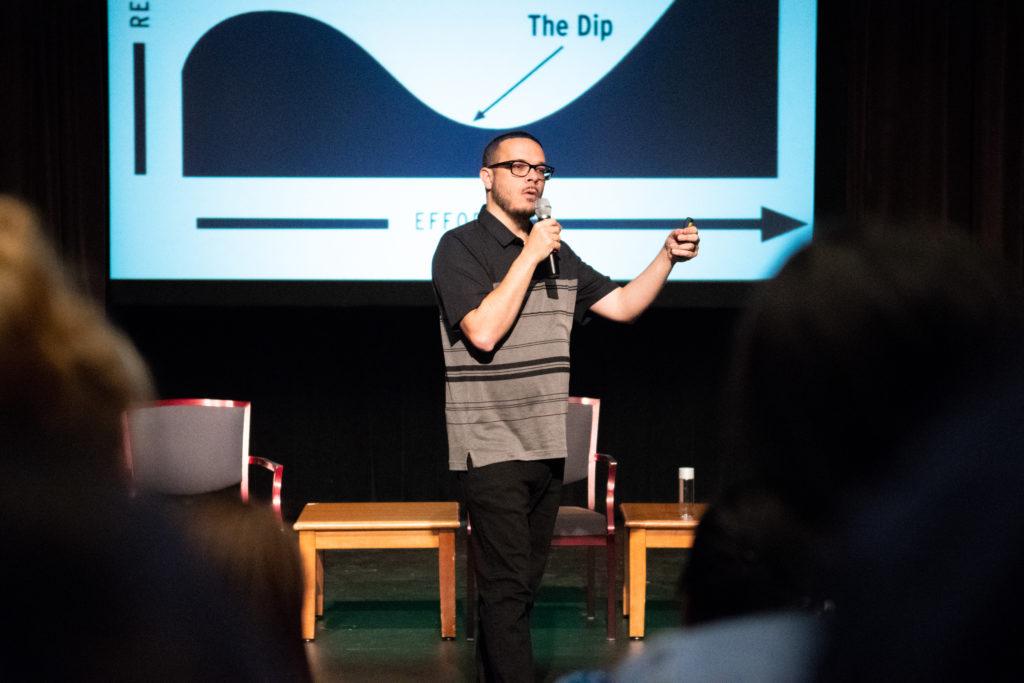Civil rights activist and author Shaun King visited the Marvin Center Tuesday to discuss the way social media influences advocacy and activism.
King, an activist for the Black Lives Matter movement and a columnist for The Intercept, spoke to a group of roughly 80, including GW administrators, students and alumni and about 50 students attending the International Baccalaureate Global Conference. His discussion was part of the conference’s weeklong program – which explored the theme “Student Activism and Social Justice in a Global Context” – hosted at the University this week.
“I often feel overwhelmed by all the ugliness going on in our country,” King said. “I wish there were so little ugliness that you knew exactly what I meant.”
King said violence and police brutality against black Americans, like Eric Garner and Trayvon Martin, pushed him to become more involved in activism, especially on social media. The Black Lives Matter movement first surfaced online after the acquittal of Martin’s killer in 2013 and gained traction the next year after the deaths of Garner in New York City and Michael Brown in Ferguson, Mo.
King said that after a friend sent him the widely publicized video of a New York Police Department officer choking Garner, he felt compelled to share the clip on Facebook and reach out to those affected by the violence.
“I had never seen that in my whole life,” he said. “I can’t explain it. I was just shook.”
King opened his talk with a discussion about the theory that the quality of humanity should improve over time – but said that this hasn’t been the case in recent years, citing examples like the Holocaust, genocide in Rwanda and police brutality against unarmed black men.
Instead, he said, technology has improved over time – and the contradiction of the two was evident during the 2016 presidential election. He said President Donald Trump, who did not come from a background in politics, was able to defeat 17 Republican candidates because he had more Twitter followers than all of his opponents combined.
“I really think in a lot of ways that Donald Trump is what you get when you get low character with great technology,” he said.
In an interview with The Hatchet after the discussion, King said social media will remain a powerful tool for activists and politicians going forward – and strong social media followings may even be able to elect the next president. King said a candidate will only be able to beat Trump in 2020 if they are already a “star” on social media.
“It’s going to take someone that’s enormously famous to beat him, and so in that sense, social media’s still going to be a key part of politics, presidential politics, organizing,” he said.





